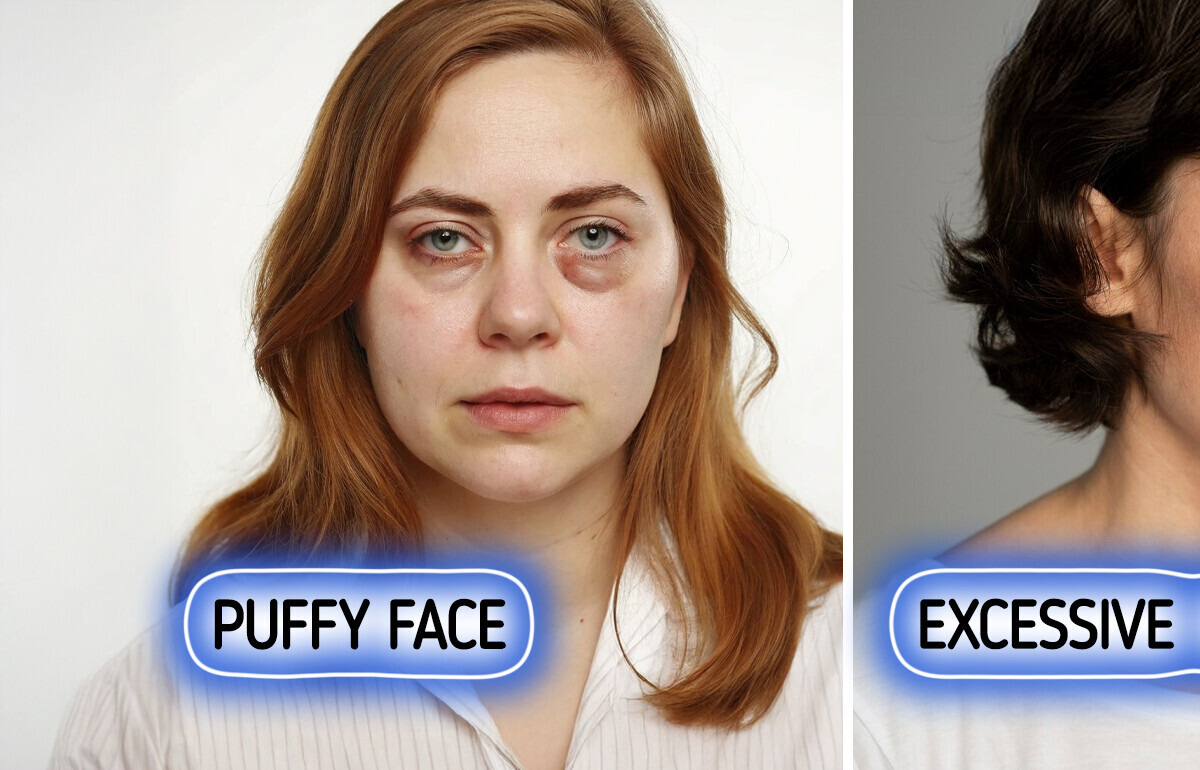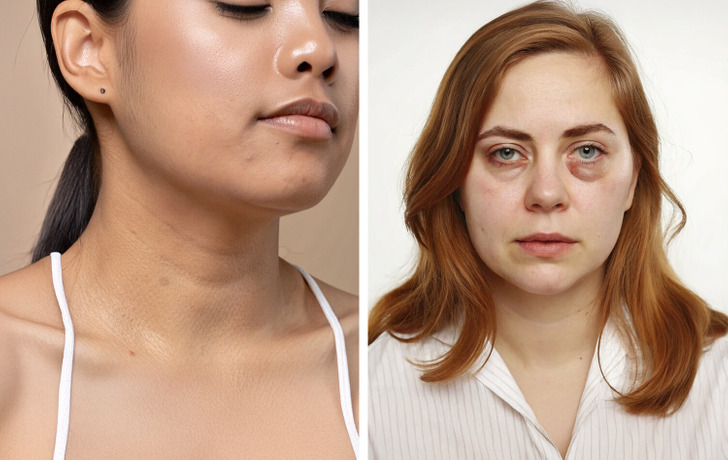10 Celebrity Kids Who Grew Up to Look Nothing Like You Remember


Your thyroid may be small, but when it’s out of balance, it can throw your entire body into chaos. Many thyroid warning signs are subtle — easy to brush off or blame on stress, aging, or everyday life. But ignoring these early symptoms can lead to bigger health issues down the road. Here are 6 signs your thyroid might be in trouble — and why you shouldn’t wait to take them seriously.
CONTENT IS PROVIDED FOR INFORMATIONAL PURPOSES ONLY AND IS NOT INTENDED AS A SUBSTITUTE OF MEDICAL ADVICE. SEEK GUIDANCE OF YOUR DOCTOR REGARDING YOUR HEALTH AND MEDICAL CONDITIONS.
Dry, flaky skin that doesn’t improve with moisturizers might be your body’s way of telling you something’s off. Hypothyroidism slows down your body’s processes, including skin regeneration — leaving your skin looking dull and feeling rough. Hair loss or thinning, especially at the outer edges of your eyebrows, is another red flag.
Overactive thyroid issues can also cause changes in your hair texture, making it brittle or fine. If your usual beauty routine suddenly stops working and you’re noticing skin and hair changes, it might not be your products — it might be your thyroid.
While the thyroid doesn’t directly control your bladder, an imbalance in thyroid hormones can still mess with your urinary function. Whether you have hypothyroidism (underactive thyroid) or hyperthyroidism (overactive thyroid), changes in hormone levels can affect your kidneys, leading to more frequent trips to the bathroom.
This can sometimes cause symptoms of overactive bladder (OAB), like needing to pee more often than usual. So, if you’re noticing changes in how often you’re running to the bathroom, it could be connected to your thyroid health.
If you have an overactive thyroid, symptoms can vary from person to person. So, if you’re feeling extra thirsty, don’t panic just yet — but it’s a good idea to keep an eye on other signs like unexpected weight loss, shaky hands, feeling exhausted, anxiety attacks, or lightheadedness.
If you notice a few of these symptoms along with that excessive thirst, it might be time to see your doctor and get things checked out. It’s always better to be safe and catch any issues early.
For women, thyroid problems can mess with menstrual cycles. Hypothyroidism often leads to heavier, longer periods, while hyperthyroidism can cause lighter or even missed periods. Both conditions can make it harder to get pregnant because they disrupt the balance of hormones needed for ovulation.
If your cycle has become unpredictable, or you’re struggling to conceive, your thyroid could be playing a hidden role. These symptoms are easy to overlook or blame on stress, but they’re worth investigating with a blood test.
Thyroid eye disease (TED) is an autoimmune condition where the muscles and fatty tissue around your eyes get inflamed. This inflammation can make your eyes appear to bulge or stick out, often leading to a “staring” look. You might also notice your eyelids and eyes becoming red and swollen. In some cases, the inflammation affects the muscles controlling eye movement, which can cause your eyes to become misaligned, leading to double vision.
Although it’s rare, TED can cause serious problems like blindness due to pressure on the eye nerve or ulcers on the cornea. TED is most often linked to an overactive thyroid caused by Graves’ disease, but it can also occur in people with a normal or underactive thyroid. Around 25% of people with Graves’ disease will develop TED at some point. It’s also called Graves’ orbitopathy (GO) or Graves’ eye disease (GED).
The most common symptoms of TED include:

One of the sneakier signs of hypothyroidism is facial puffiness, especially around the eyes and cheeks. Your body retains fluid more easily when your thyroid is underactive, which can lead to a swollen or bloated look — even if the rest of your body hasn’t changed much.
It’s not just about appearance. This puffiness is a sign your body is struggling to manage fluid levels properly, and it often comes with a general feeling of sluggishness or heaviness. If your face looks different lately and makeup or skincare isn’t fixing it, your thyroid might be quietly working against you.
Your thyroid impacts more than you think — and catching these early signs can make all the difference. Don’t ignore what your body is trying to tell you. For more early warning signs, read about the subtle stroke symptoms in women and the hidden signs of vitamin D deficiency you might be missing.











